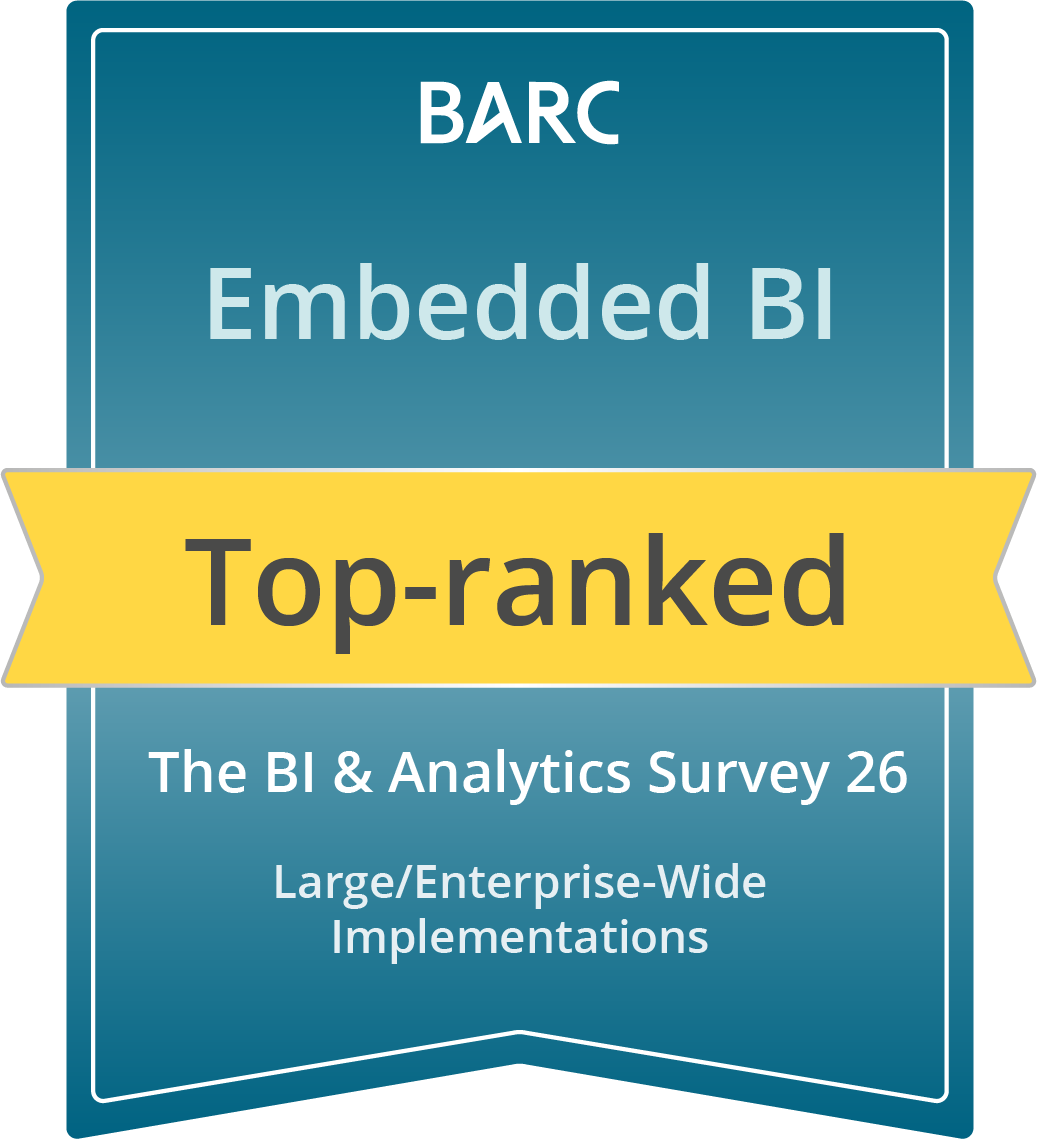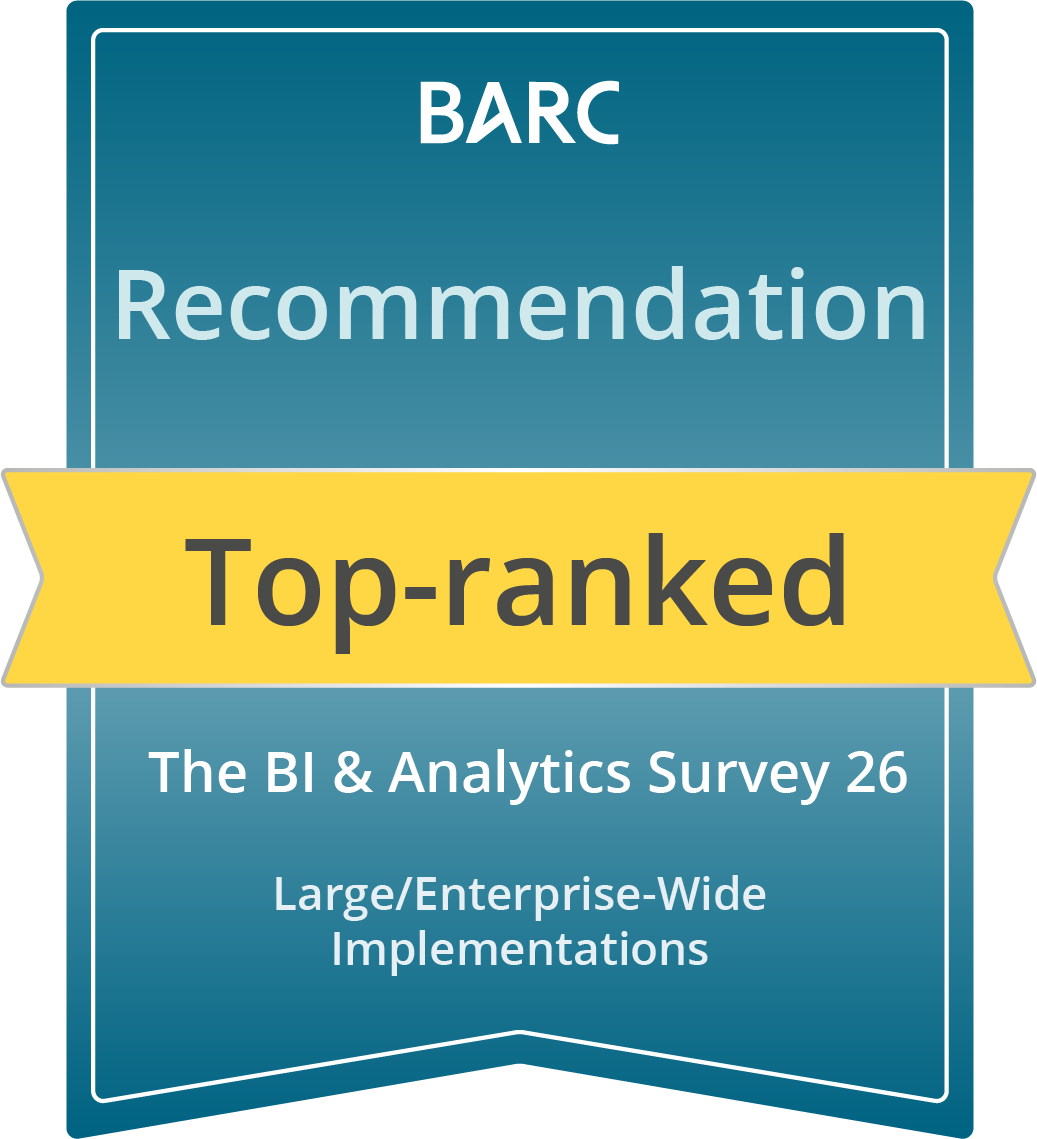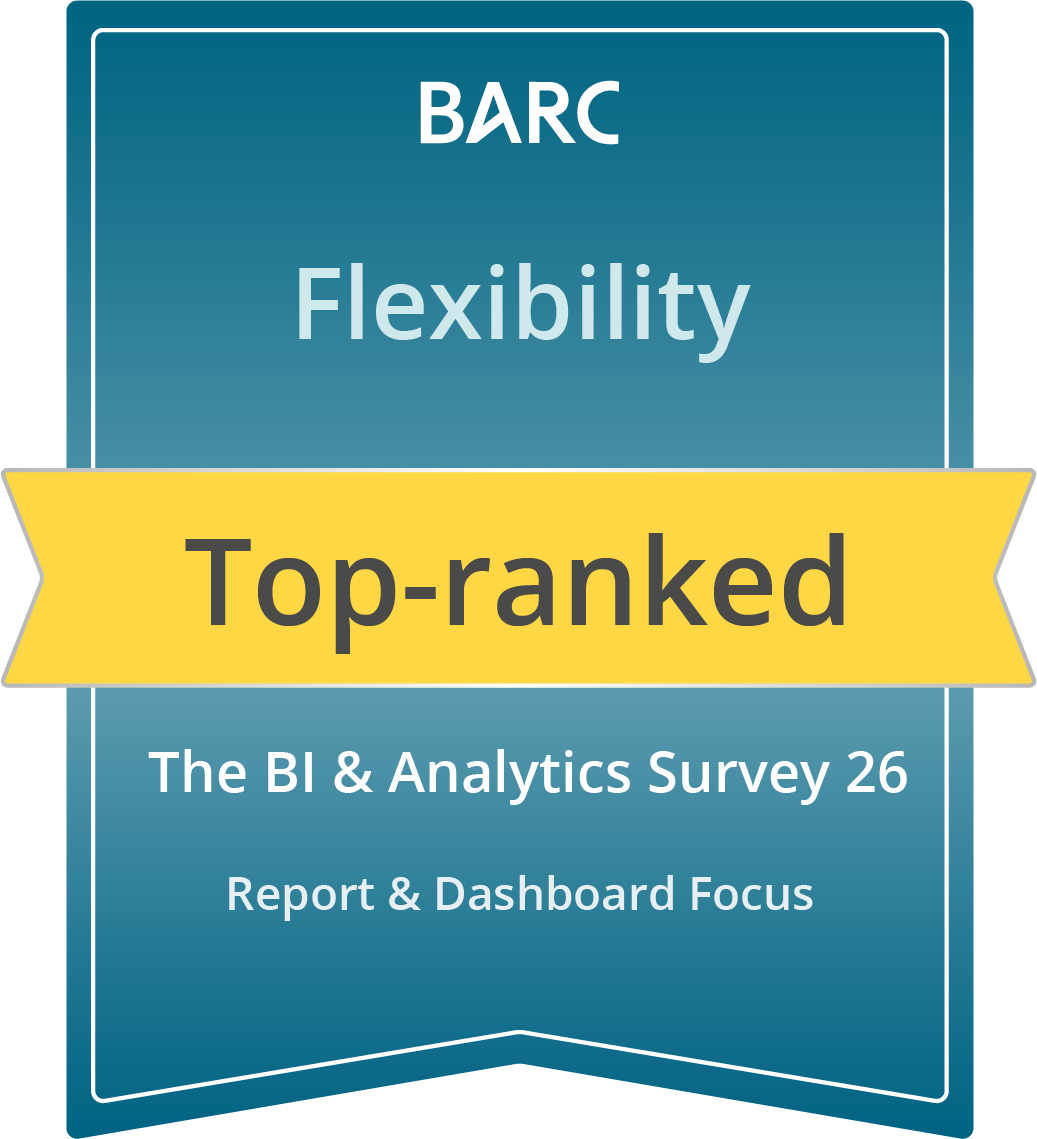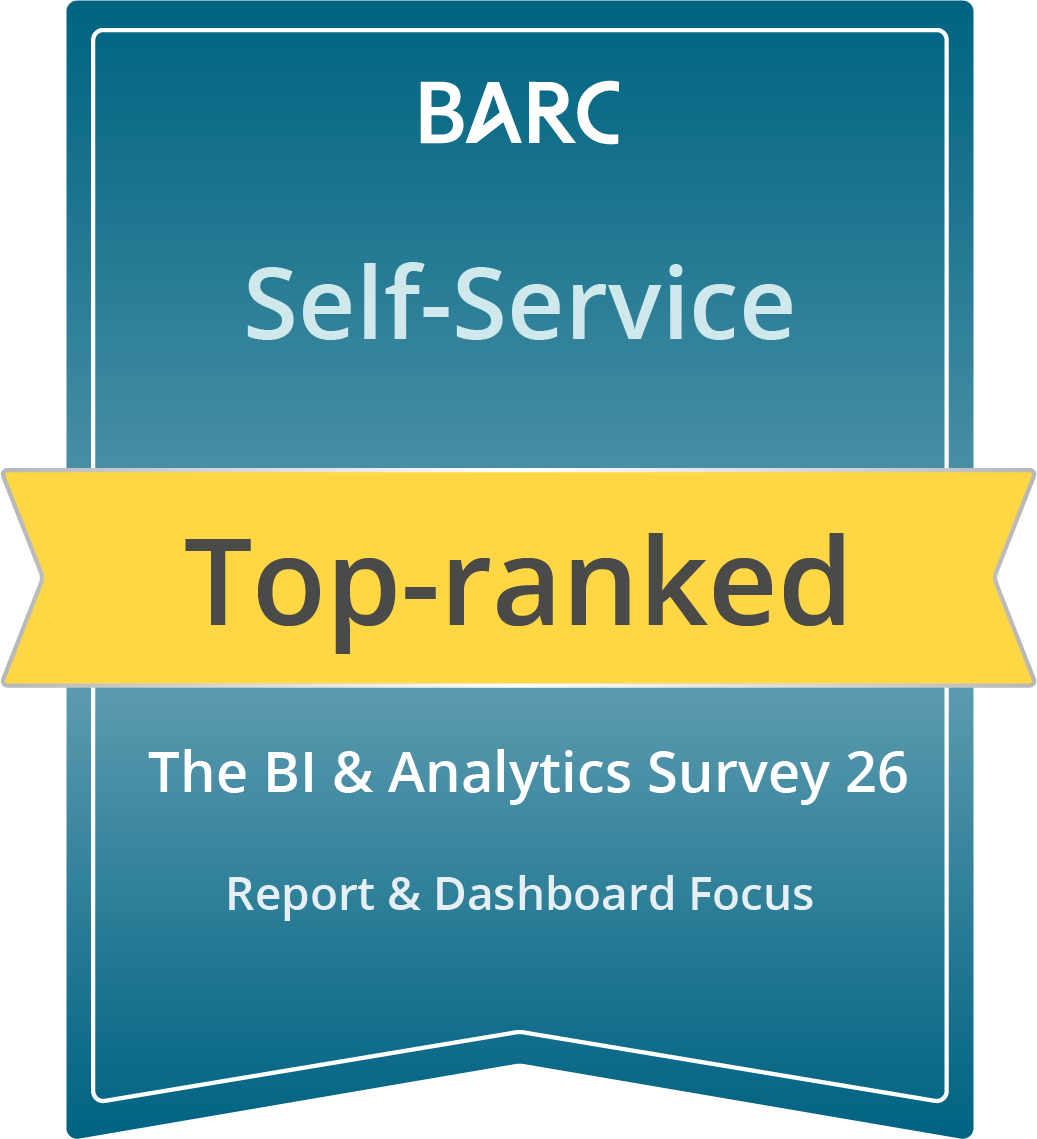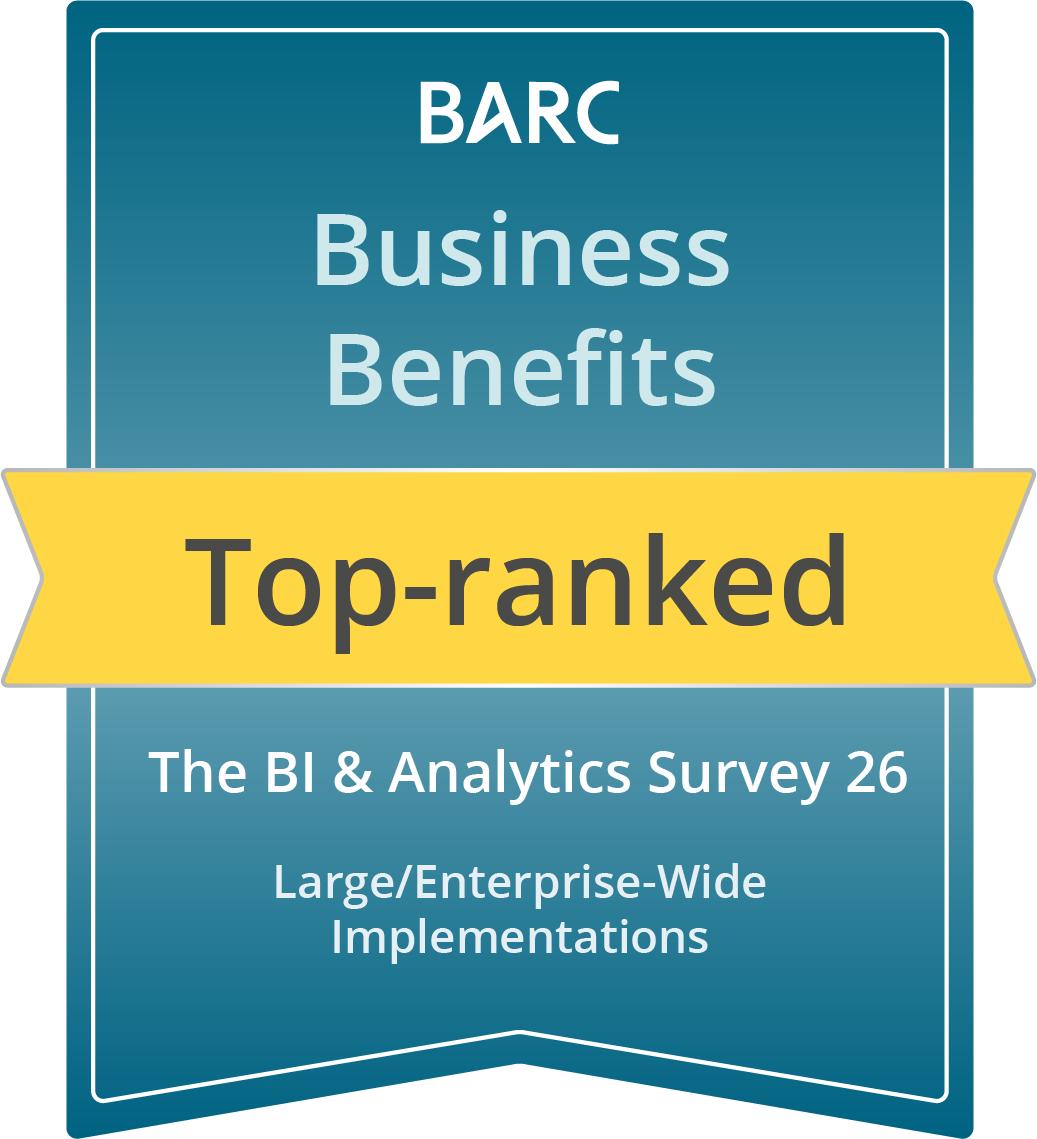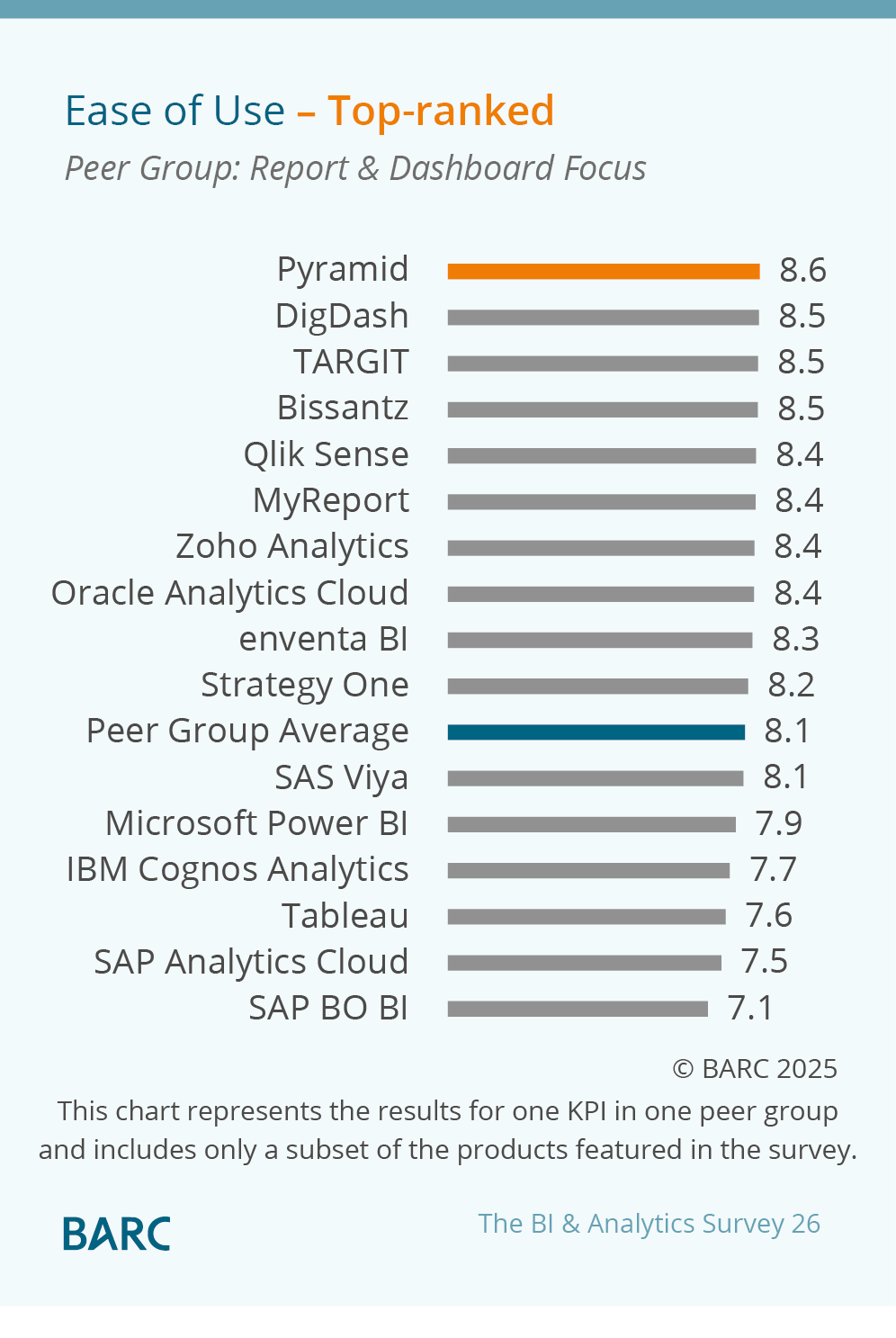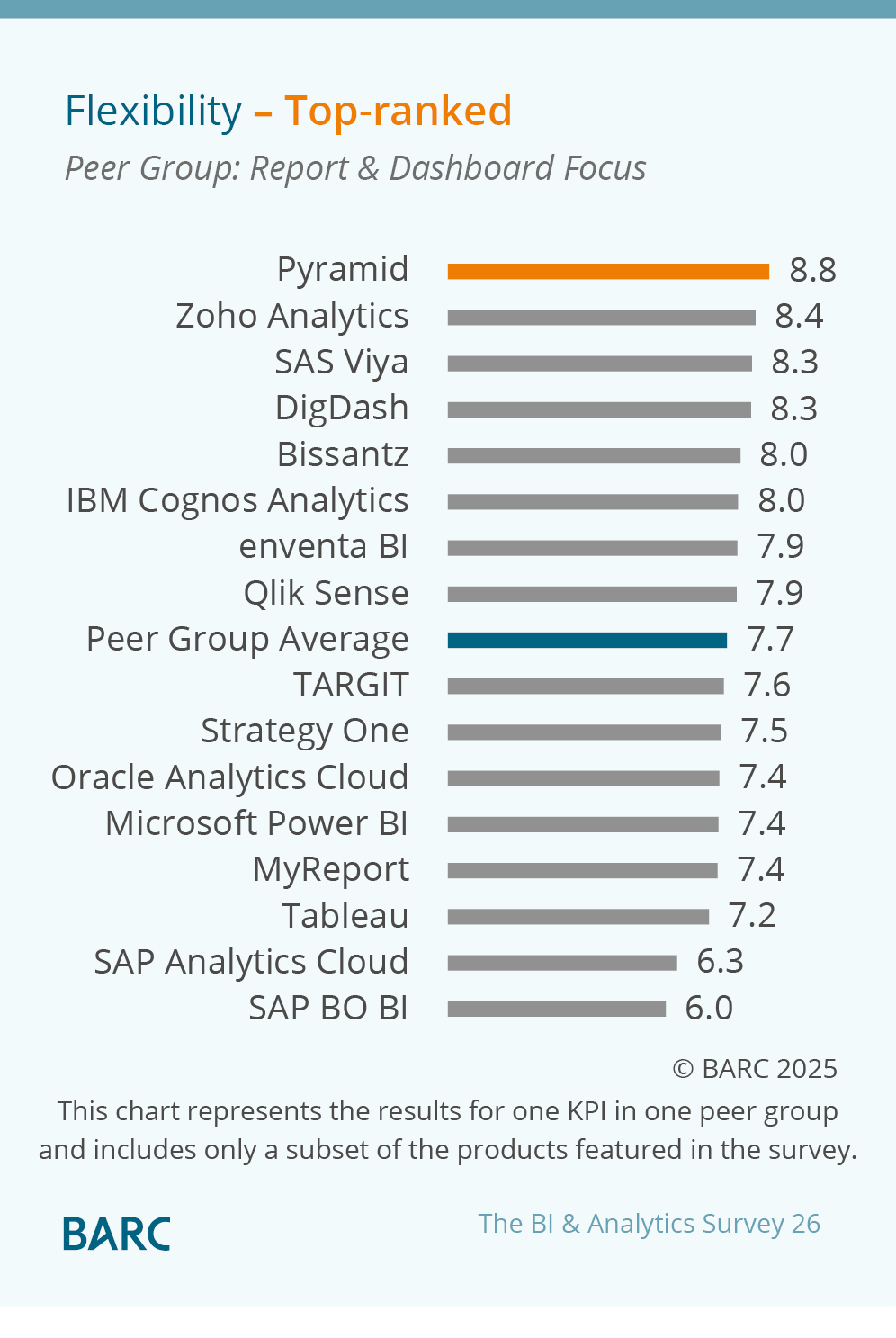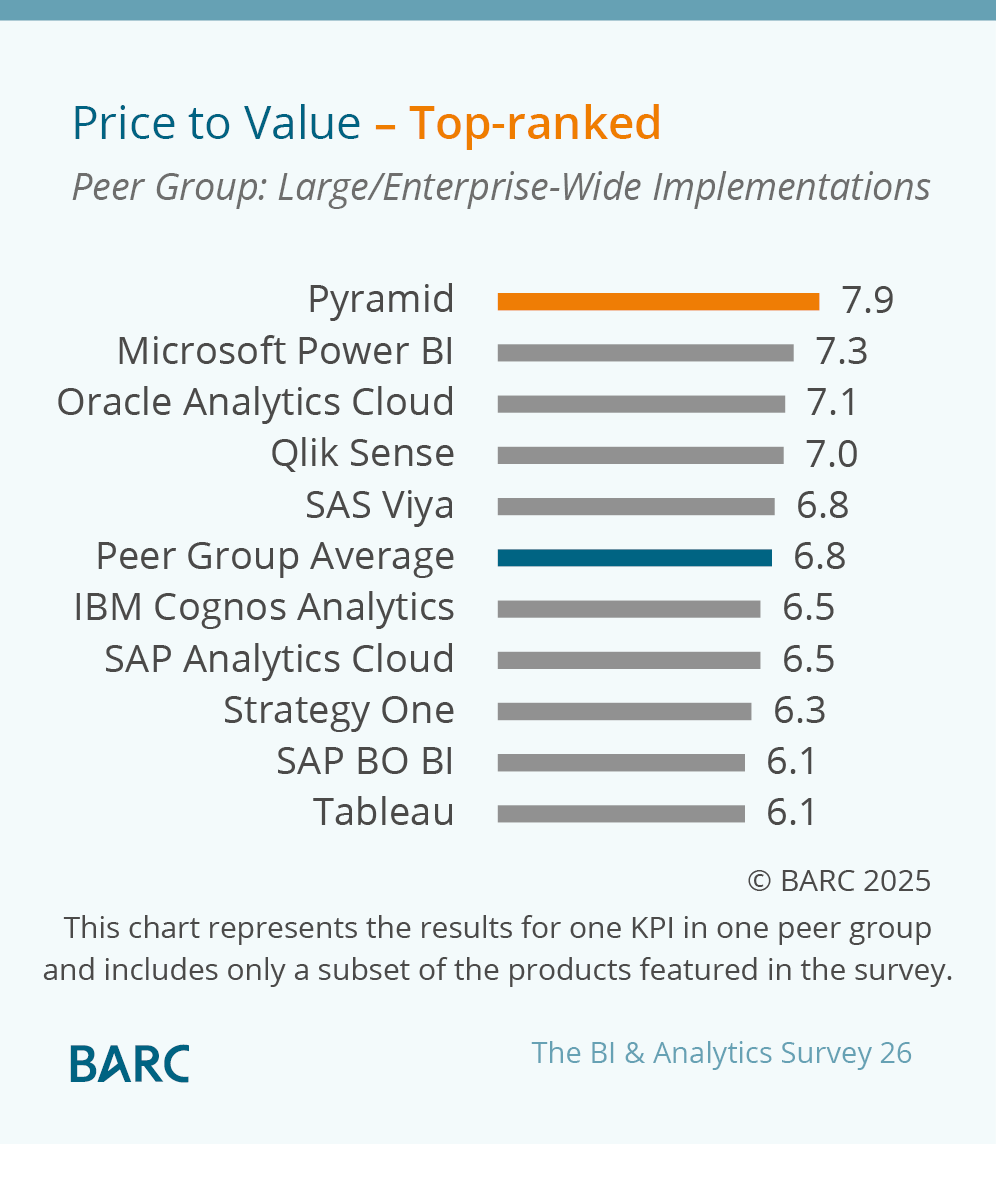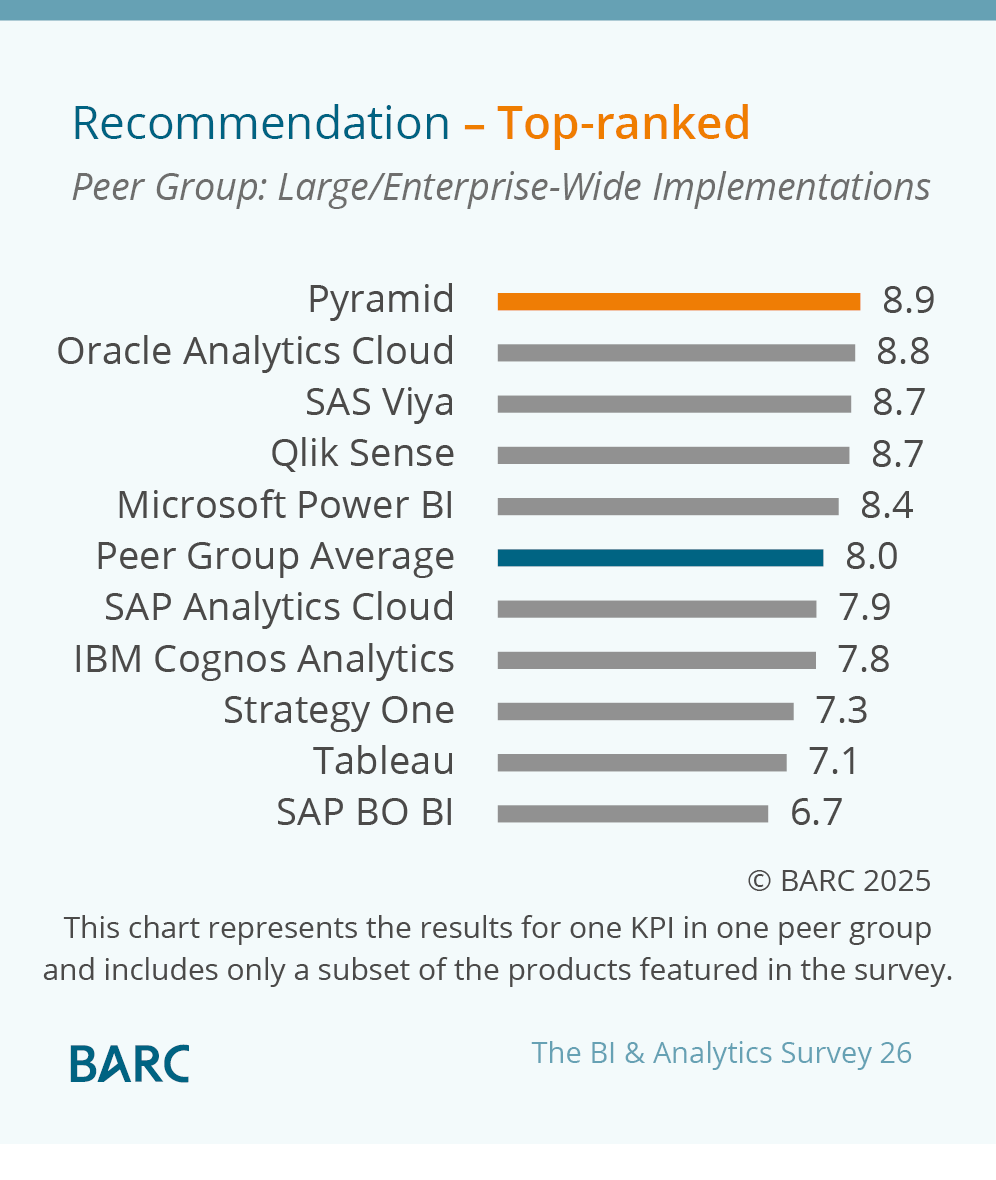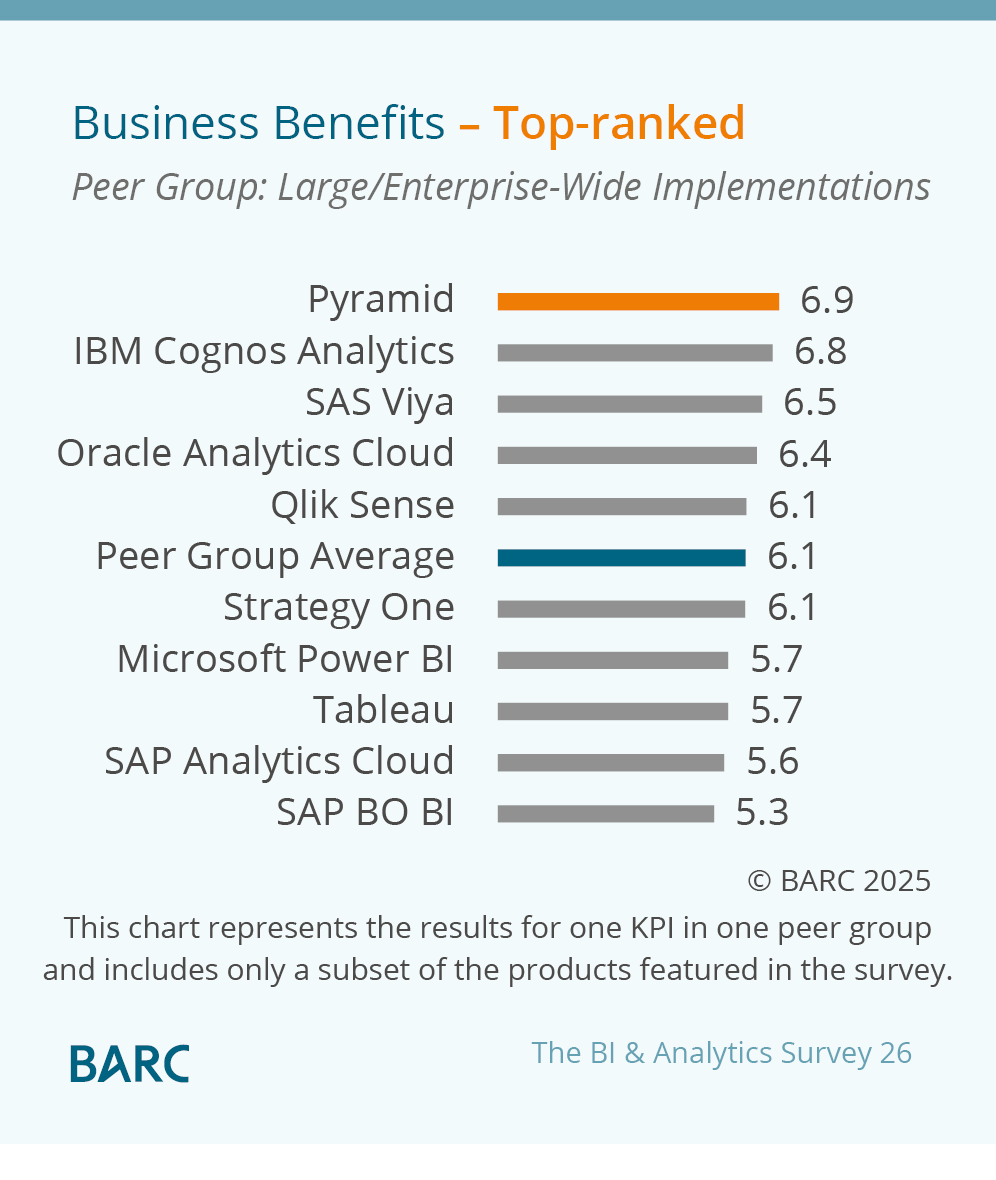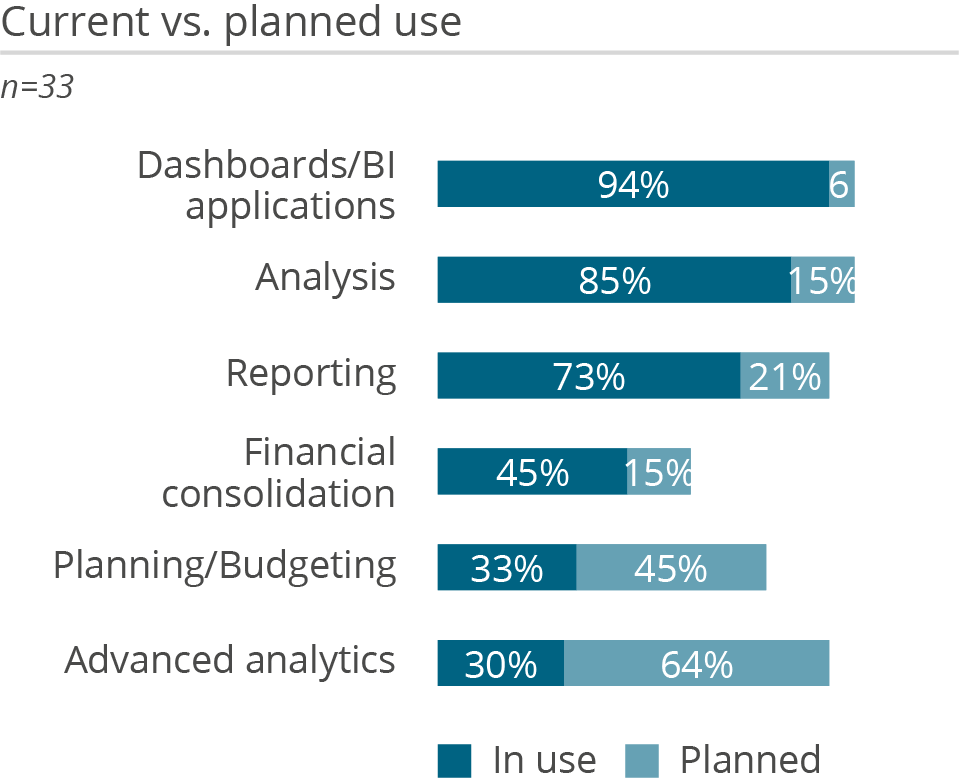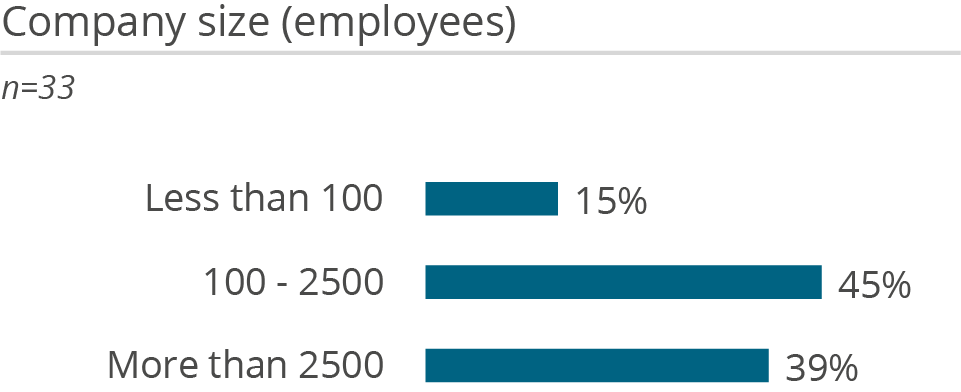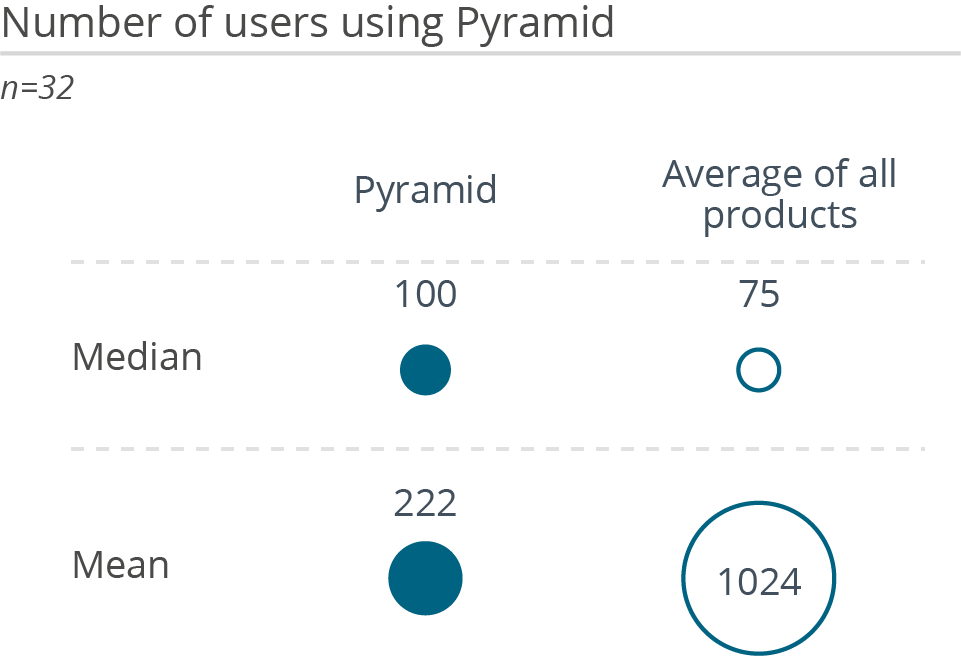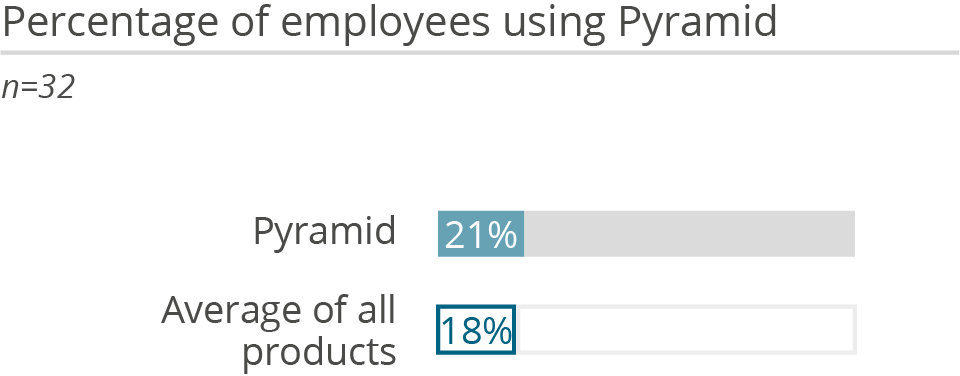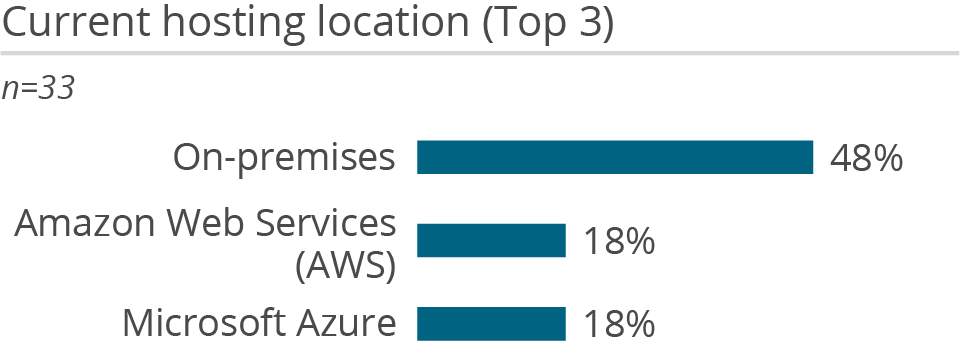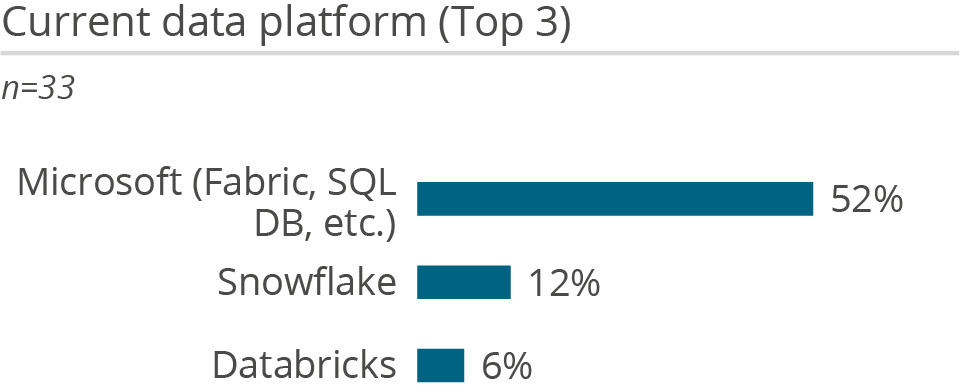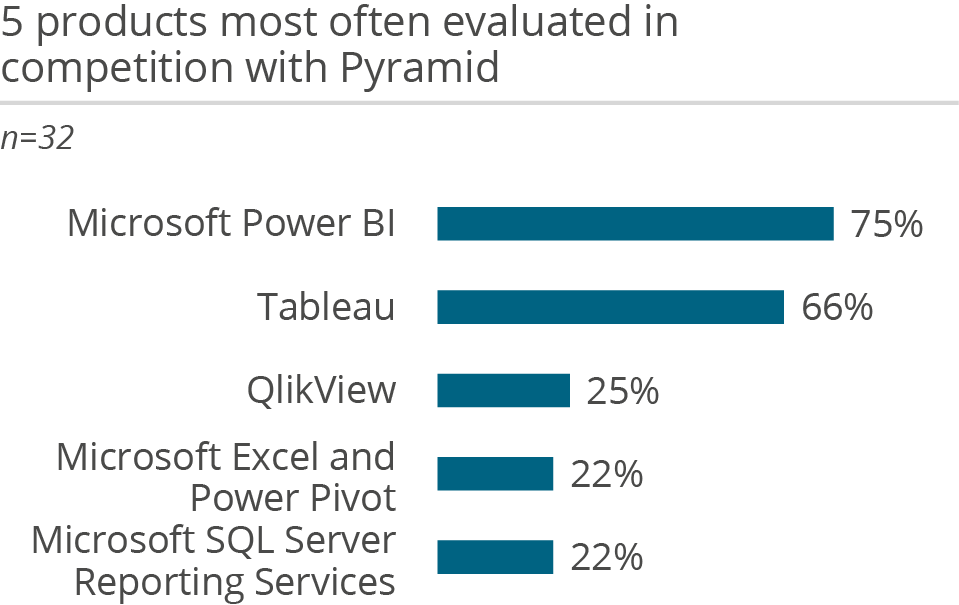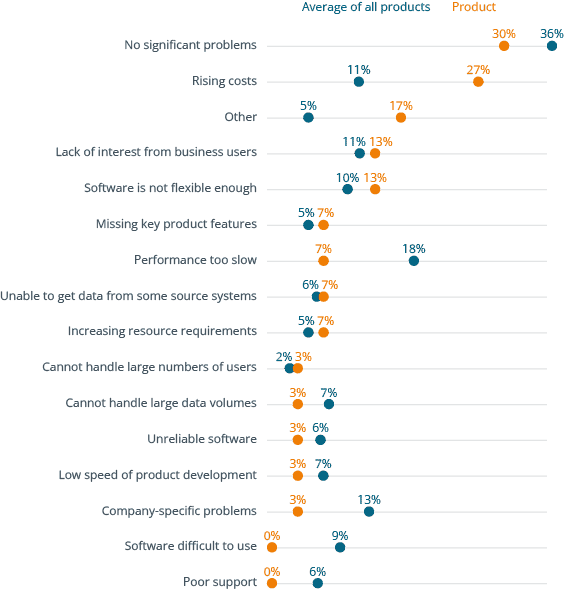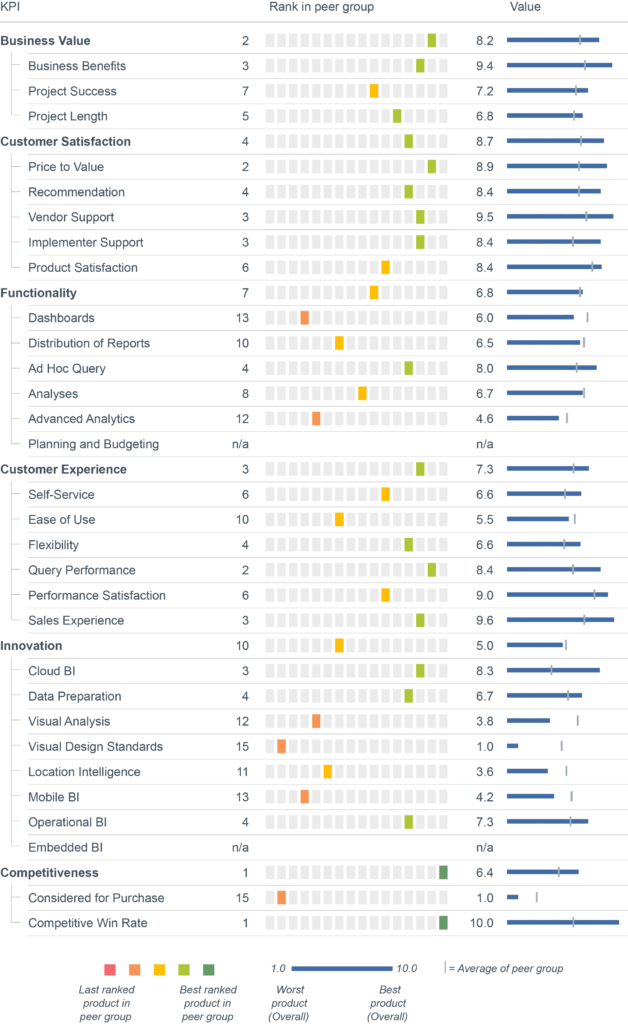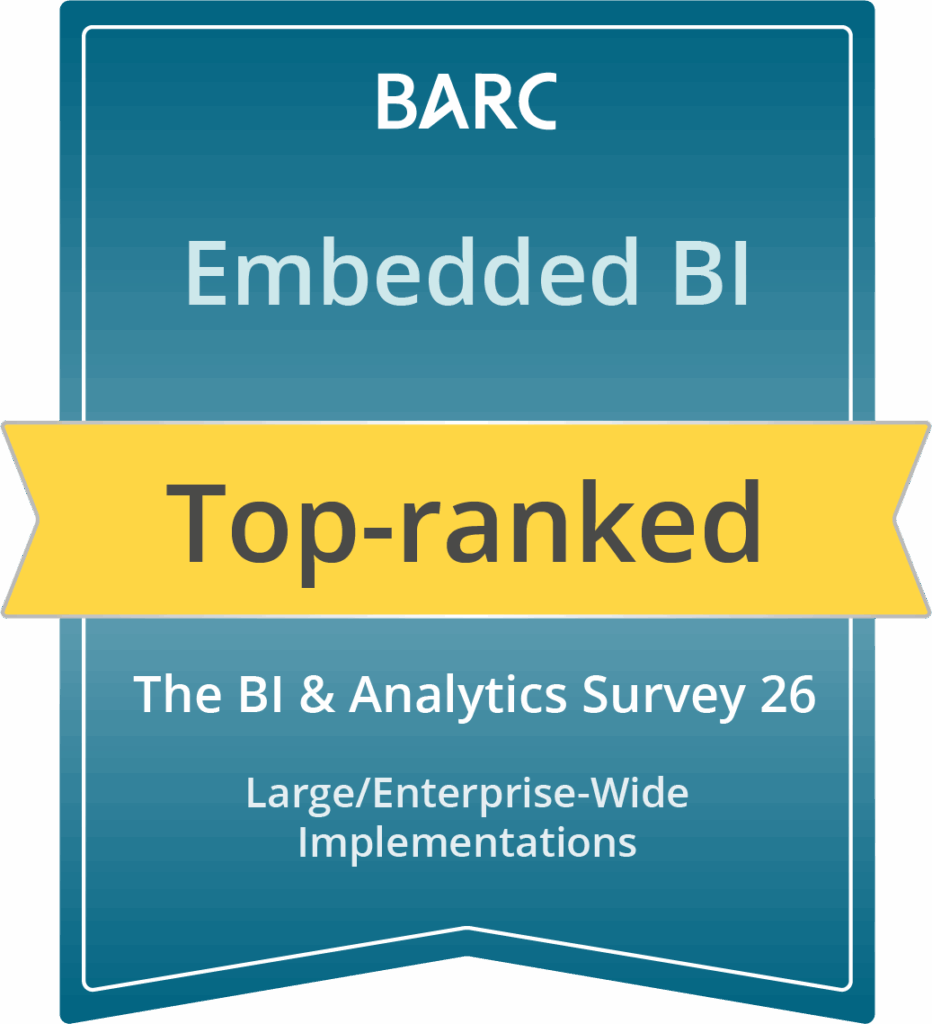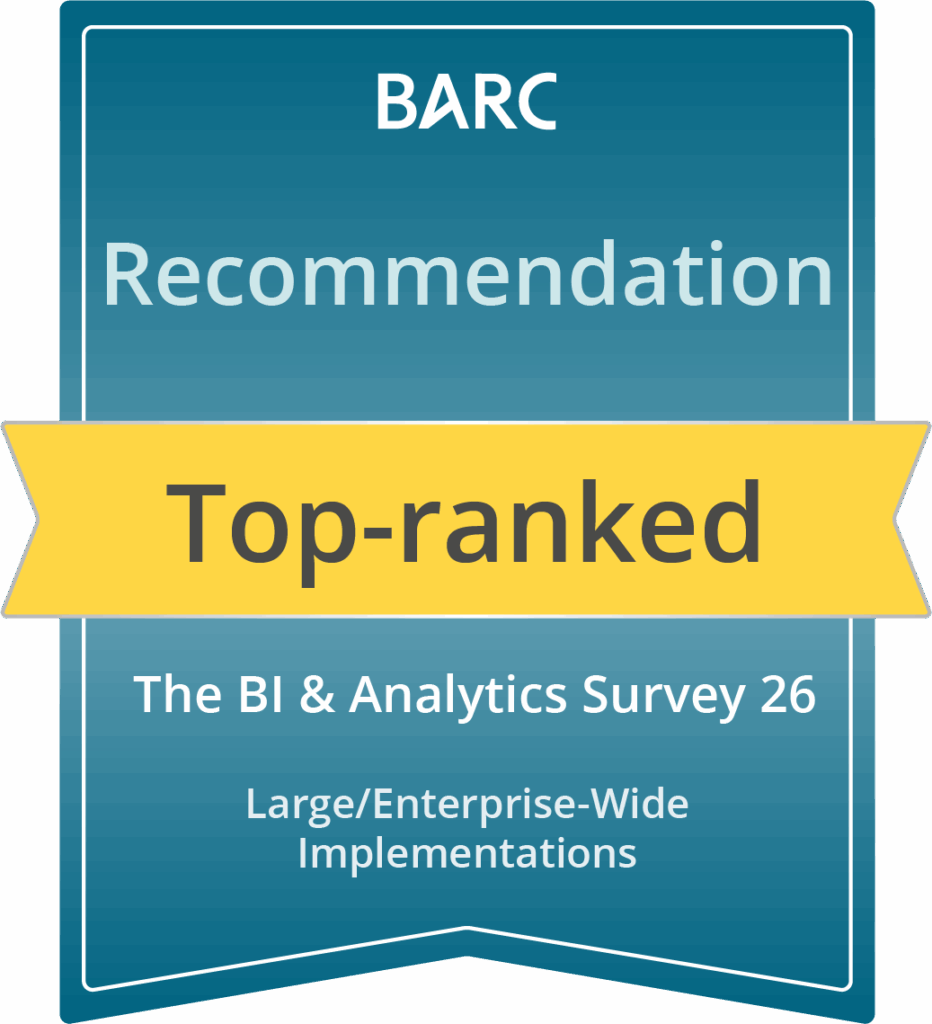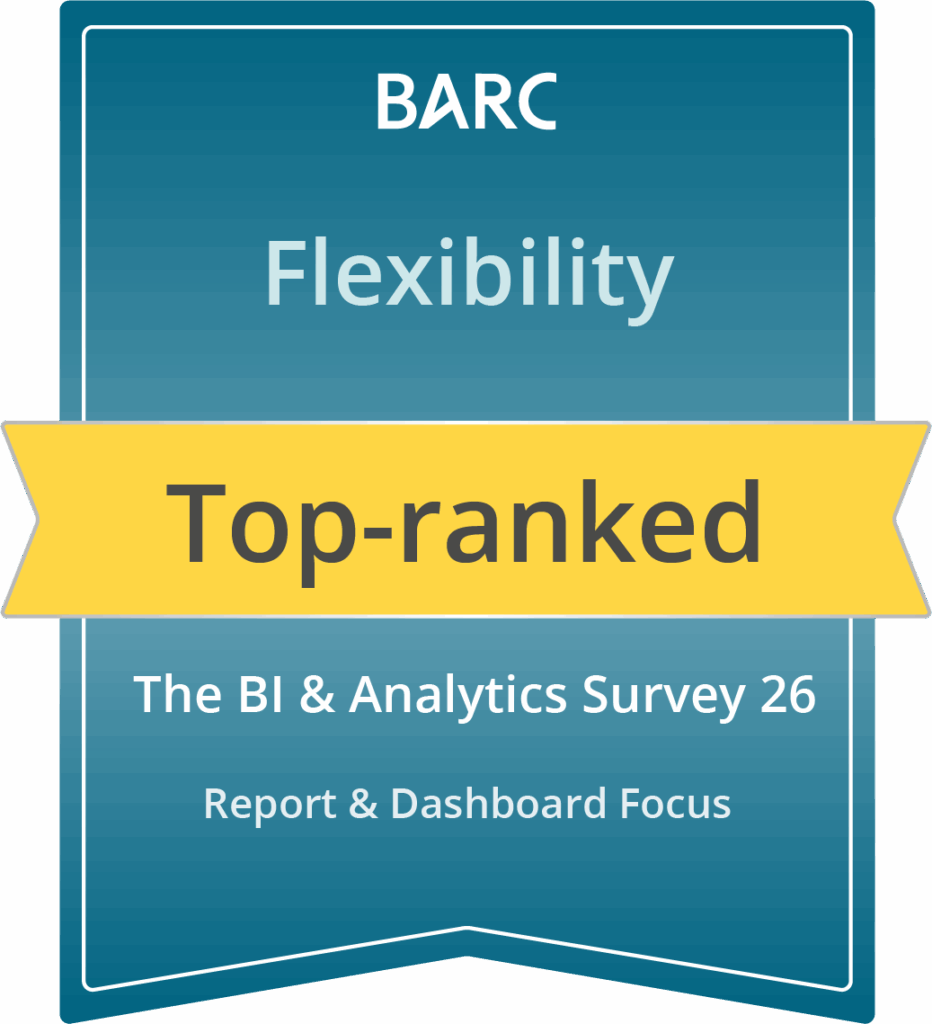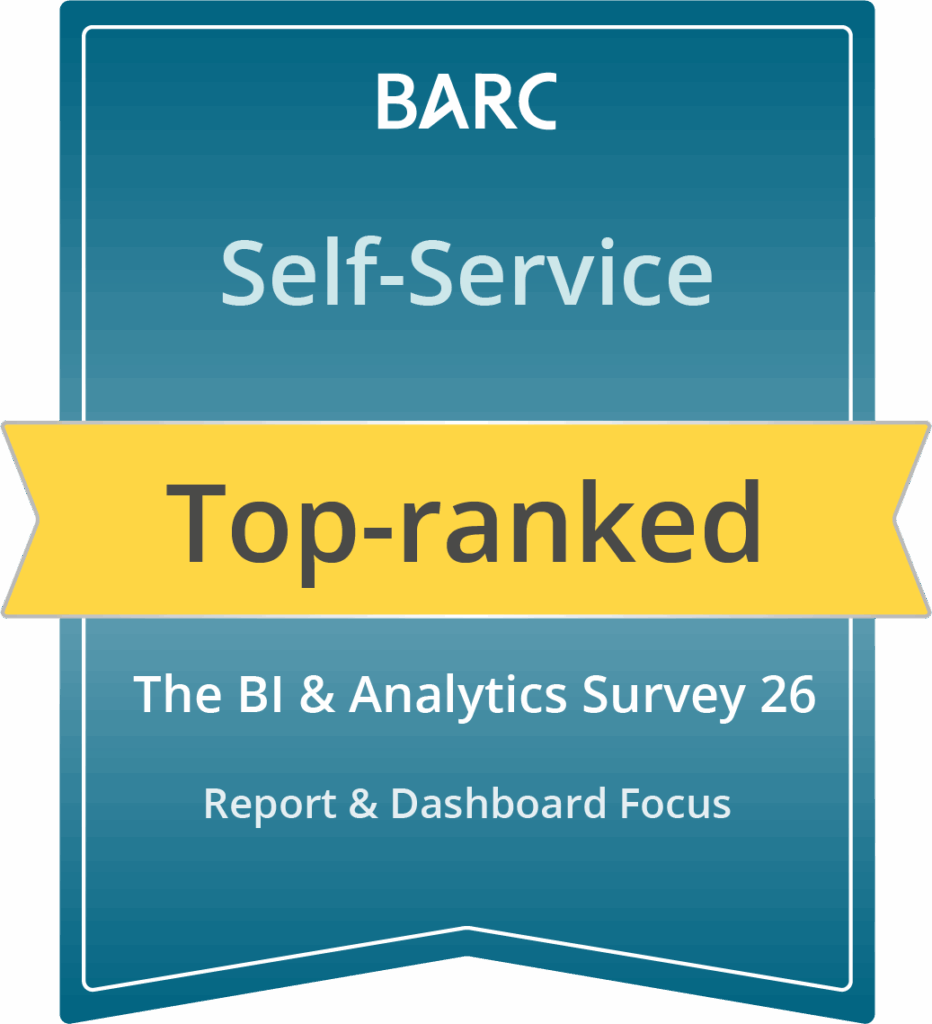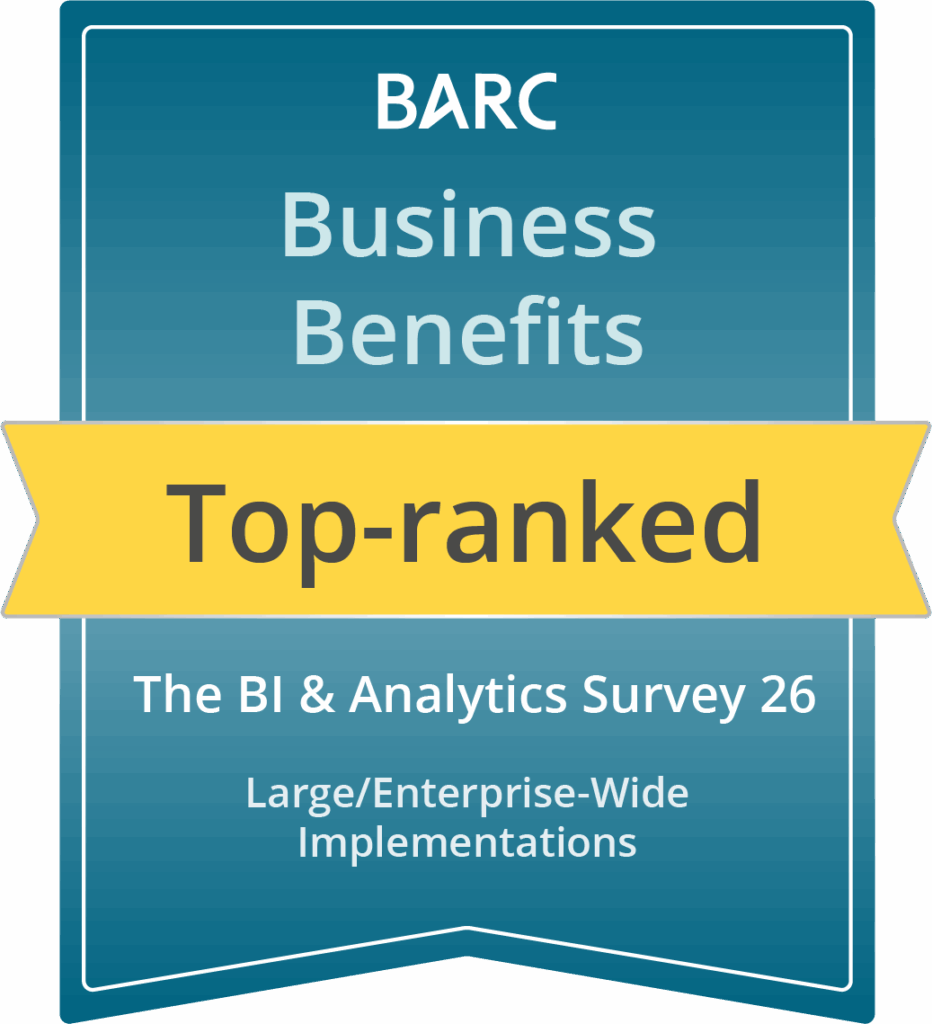Founded in 2009, Pyramid Analytics is a privately held software company with more than 250 employees. The company is headquartered in the Netherlands and has offices in the United States, Israel and the United Kingdom. It continues to grow and now supports more than 3,500 customers.
Pyramid Analytics launched its first BI product, BI Office, back in 2012. In 2017, the company introduced Pyramid Decision Intelligence Platform (Pyramid), a newly architected and revamped product to help customers make faster and more intelligent business decisions by automating the decision-making process.
Pyramid combines components for data preparation, reporting, dashboards and advanced analytics (machine learning, data science) into a unified enterprise BI & analytics platform. It was designed from inception to bridge the gap between self-service and IT-driven BI & analytics, providing agility for decentralized business users while retaining centralized monitoring and control. This fosters enterprise-wide collaboration through the sharing of business logic and content.
The vendor puts an emphasis on Pyramid as an open and agnostic web-based platform. Its open architecture means the software can be deployed in different environments: cloud, hybrid or on premises including full support for dynamically scalable Kubernetes deployments. Moreover, Pyramid is device and operating system agnostic with full gesture support on touchscreen and mobile devices. Through this versatility, customers can use the product to transform their existing and traditional on-premises businesses to modern cloud-based deployments.
Pyramid also supports REST API to cater for scenarios such as embedding and automation. Its analytics engine, ‘PYRANA’, drives direct querying and analytic calculations across different data sources using ANSI SQL or MDX – which enables fast in-place analytics on large data sets. This extends direct analysis to numerous relational, in-memory, cloud data warehouses and unstructured data sources natively – including Pyramid’s own in-memory engine. Pyramid also offers certified support to various SAP data sources, making it a viable alternative to leverage data from, for example, BW/4HANA without duplicating it. Data preparation and modeling features to support data integration and processing are incorporated into the product. Besides connecting and querying data, the vendor also supports write-back to most relational data sources.
For ML and AI, the vendor relies on R, Python, MLib, Weka and TensorFlow integrations. The forthcoming Data Science Workbench will provide support for professional data scientists. Pyramid is also investing in GenAI and has incorporated AI into its data preparation and analytics front ends. Its NLQ chatbot now leverages LLMs to provide users with search-based analytics on all data sources without indexing all the data upfront. It allows users to interactively query and refine analyses through a conversational interface. The vendor’s multi-LLM strategy allows customers to bind specific LLMs to specific models, for example using a domain specific LLM for more specialized industry models. Moreover, automated insights (‘Smart Insights’) leverage NLG to explain the source of anomalies (by identifying key drivers, influencers and relationships), forecasts and other findings when applied to visuals or query results. Power users also benefit from incorporated AI features such as assistance for formulas and dashboard creation.
The Tabulate and Solve modules are comparatively new. Tabulate is a browser-based spreadsheet environment which resembles Microsoft Excel. It offers business analysts well-known Excel formulas and granular formatting options. The module stores its objects, like other Pyramid objects, centrally and does not produce single file structures as its prominent competitor does. Solve is a server-based optimization engine, incorporated into the Tabulate environment, which can be used for decision modeling and to solve optimization problems. The insights users gain in Tabulate can be published to other users using either the Present (dashboard) or Publish (pixel-perfect reporting) modules.
In one of its latest releases, Pyramid has expanded its embedded analytics capabilities to provide customers with greater flexibility to support white labeling use cases. For instance, a search bar is now embedded into the Hub (customized homepage) to avoid the launch of additional pop-ups or iframes when using NLQ. The platform also offers more customization and formatting options in menus and icons. Moreover, the new ‘Xtender’ feature supports the switch of data sources for different tenants that share a common semantic model.
